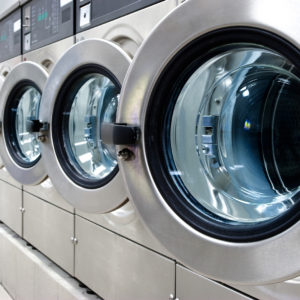Otherwise disparate voices in the two major political parties are seemingly unified on one score — a newfound skepticism of free trade. It’s difficult to find a more counterproductive issue on which to agree. America’s essential embrace of free trade over the centuries has been an enduring source of strength and economic expansion.
Many have rightly criticized Donald Trump’s proposed 45% tariff on Chinese and Mexican goods. For American families hoping to buy certain top-tier washing machines, however, the tax is already here. In a preliminary ruling last summer, the Commerce Department slapped a 111% tax on imports of Samsung’s best clothes washers and a 48% tax on LG’s nicest models.
In December, Commerce reduced Samsung’s tax to 52%, but the point remains. The case now proceeds to the International Trade Commission for the “injury phase,” where the ITC will try to tease out the complex economics of the industry to judge whether U.S. firms are being unfairly harmed. But first a little background.
The charge from Commerce is that Samsung and LG are “dumping” the smart-washers in the U.S. at below market prices, thus hurting rival Whirlpool, which brought the complaint. Dumping is a common charge by firms facing import competition. And Washington (and other national capitals) are all too gullible when a U.S.-based firm (and constituent) asks for an investigation of non-constituents with foreign sounding names. It’s a tale as old as time, which points to the very purpose of free trade agreements: to mitigate the temptations of protectionism and elevate economic activity over politics.
In this case, Commerce, as is typical, massaged the numbers to make a predetermined case. To prove dumping, it needed to show the “real” cost of producing the Samsung and LG washers was higher than the selling price. But the washers, which are assembled in China, are made from many hundreds of parts. So Commerce attempts to estimate prices for all those component parts in a market economy country — in this case, Thailand — and arrive at a sum total of what the washer “should” cost. As you can imagine in a political investigation, the estimates can be wildly off the mark.
Pretending we can accurately label products and firms “foreign” or “domestic” is folly. Modern businesses are exceedingly complex and international. In the U.S., for example, 15 of the 20 cars with the highest content of “domestic” parts are built by non-Big Three — that is, “foreign” — auto makers. Whirlpool buys washing machine components from China, and Samsung builds microchips in Texas. Which is the American firm?
The ITC investigation now hinges on the intricacies of product pricing and profitability. For example, the ITC in a preliminary review found that Whirpool sells domestic washers at a loss. But the ITC ignored the common industry practice of selling washers and dryers in pairs, half the total price attributed to each. In reality, however, washers are more complex and costly, and only generate a “loss” in an accounting sense. The simpler and cheaper-to-make dryers are more profitable (again, in an accounting sense) and making up the difference.
But you might be wondering: do we really want Washington judging these things?
Recent political rhetoric far exceeds the actual anti-trade sentiments of American workers and voters. Yes, manufacturing jobs have declined as knowledge and service jobs have risen. But most people know, contrary to what they hear in stump speeches, that America still “makes things” and that we make more high-value goods and fewer low-value goods than before. In the last 20 years, since NAFTA came online and China entered the World Trade Organization, U.S. manufacturing output is up 40% in real terms. The U.S. is the world’s second largest manufacturer and third largest exporter. If U.S. manufacturing were a nation, it would be the world’s eighth biggest economy.
The idea that we need to “protect” the U.S. economy is backwards. Between 2000 and 2015, U.S. firms invested $739 billion in international manufacturing facilities. But international firms during this period invested nearly twice as much — $1.35 trillion — in U.S. manufacturing. Sometimes firms invest abroad because it’s cheaper to build products there. Sometimes it’s the location of natural resources or the nature and size of a labor force. Apple, for example, says some of its China manufacturing could not be performed anywhere else, regardless of price. Other times, the purpose is to build products close to where you sell them. Toyota and BMW, for example, build plants in the U.S. in part to show they are committed to the U.S. market.
Regardless, America’s place as the prime destination for international capital (both human and financial) has been a strength for several hundred years. And it is this very capital surplus that helps the American economy grow and, in turn, allows American consumers to buy more nice things like smartphones and washing machines. Some call this a “trade deficit,” but it’s really called wealth. Contrary to those stump speeches, most Americans know how much value they and their families get by buying the best products at the lowest prices from anywhere in the world. But if we cut ourselves off from the world, others will do the same. And because we buy more, and also receive more investment, from abroad, we’ve got more to lose.
Many American workers and families are experiencing real economic hardship, as wages and incomes have stagnated. And trade is not the problem. Forcing American families to pay twice as much for a high-quality washing machine is not going to fix the U.S. economy in the ways it needs fixing. Dumping investigations are almost always a way for Washington to transfer dollars from unsuspecting American consumers to favored interests. Meantime, it only reinforces anti-trade sentiment, which is threatening to spin out of control and jeopardize our economic recovery.

